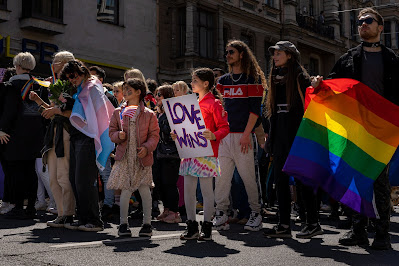Europe’s Roll-back on Gay Rights
Italy’s discriminatory orders began in January when the government instructed state agencies to halt the registration of children born to same-sex couples. In July, a state prosecutor in Padova announced the cancellation and re-issuance of over 30 birth certificates of lesbian couples’ children. Only the gestational parent’s name will appear on the certificate, meaning those of the mothers who did not physically birth the child will be removed.
Removing some mothers’ names from birth certificates severely limits their parental rights and authority to make vital decisions, such as medical advice or permission to go on school trips. It would also mean that if the biological mother died, the child could be taken away from the non-biological mother and into a relative’s or the state’s care. Non-biological parents will now have to go through the adoption process to re-establish their parental rights which can take years.
According to Human Rights Watch, Italy has ratified the Universal Declaration of Human Rights, The International Covenant on Civil and Political Rights, the Convention on the Rights of Persons with Disabilities, and the European Convention on Human Rights. The right to create a family is enshrined in each.
These recent developments in the setbacks for LGBTQ rights in Italy serve as yet another chapter in a series of consequences brought about by the surge of far-right parties across Europe in recent years.
Since 2019, many Polish regions have declared themselves as “LGBT ideology-free” and established anti-gay zones. A Family Charter supported by the government was developed aiming to promote traditional family values and protect children against immorality. Hungary has also adopted similar homophobic laws disguised as a measure to protect children. The Hungarian government have compared LGBT activists to paedophiles and has banned depictions of queer people in school materials to counter “homosexual propaganda”. Only organisations that are listed in the country’s official register can provide sexual education in schools. Sexual minorities are excluded from these curriculums.
The success of the far-right party, Vox, in Spain, is also a cause for concern. Vox won the third-largest number of votes having pledged to revert a law that guaranteed equal rights for gay people and replace the country’s ministry for equality and replace it with a family ministry. This would seek to promote more traditional visions of family and promote higher birth rates. The party also hung a large sign from a building in Madrid showing a hand throwing cards with LGBTQ symbols into a rubbish bin.
These setbacks pose a dangerous threat to human rights. The Charter of the Fundamental Rights of the European Union states that “any discrimination based on any grounds such as [...] sexual orientation shall be prohibited”. Such blatant acts of intolerance against gay people jeopardise their dignity, freedom of expression and ability to exist in a safe space. Furthermore, these moves endanger the ability of gay parents to raise a family and delegitimise gay relationships. Placing restrictions on sex education will hinder children’s development and leave them vulnerable when they begin to form intimate relationships. Likening gay people to paedophiles vilifies them and distracts from a genuine threat to children.
Governments across the European Union have joined lawsuits against anti-gay movements put forward by states such as Hungary and Poland. Solidarity is needed from all member states to support LGBTQ activists as their rights are increasingly threatened and greater protection from hate crimes and violence towards queer groups is essential. Greater action from governments to prevent further backsliding on these issues must be taken before the previous achievements of gay activists are completely reversed.
By Ella Waddington
Bibliography
https://www.hrw.org/news/2023/07/24/italys-mounting-attack-lesbian-parents
https://www.politico.eu/article/poland-still-worst-eu-country-to-be-gay/
https://www.hrw.org/news/2022/12/15/poland-rule-law-erosion-harms-women-lgbt-people
https://www.theguardian.com/world/2021/jun/15/hungary-passes-law-banning-lbgt-content-in-schools
https://www.reuters.com/world/europe/are-lgbtq-rights-stake-spains-election-2023-07-17/
https://www.theguardian.com/world/2023/jul/15/spain-far-right-vox-castilla-y-leon



Comments
Post a Comment